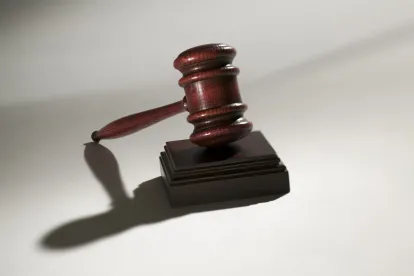Under the “implied certification” theory of liability, a government contractor can violate the False Claims Act (“FCA”) by submitting a mere invoice for payment. The theory is that the invoice’s submission impliedly certifies compliance with contract conditions. If a contractor is not complying with material contract requirements and — despite the contractor’s noncompliance — submits an invoice for payment, then the Government or a relator might argue that the contractor has violated the FCA.
Distinguishing an ordinary breach of contract from a false claim of compliance with contract terms is not easy. A recent case decided by the United States Court of Appeals for the Fourth Circuit exemplifies this difficult distinction in a way that is very concerning for companies that do business with the Federal Government. United States v. Triple Canopy, Inc., No. 13-2190, 2015 WL 105374 (4th Cir. Jan. 8, 2015).
In 2009, Triple Canopy was hired by the Government to provide security services for Coalition forces at Al Asad Airbase in Iraq. The contract required Triple Canopy’s guards to receive initial firearms training and qualify on a U.S. Army qualification course to hit a target from a distance of 25 meters with an accuracy rate of at least 23 rounds out of 40. To meet this requirement, Triple Canopy hired approximately 332 Ugandan guards to serve at Al Asad under the supervision of 18 Americans.
Although the guards’ personnel files showed qualifying marksmanship scores from a course in Kampala, Uganda, the guards could not demonstrate such proficiency in the field. Upon arrival in Iraq, Triple Canopy supervisors learned that the guards could neither “zero” their rifles nor satisfy the qualifying score of 23 rounds out of 40. After a failed training attempt, a Triple Canopy supervisor directed the creation of false scorecards for the guards that were placed in their personnel files. Additional replacement Ugandan guards, who, similarly, were unable to satisfy the marksmanship requirement, resulted in additional false scorecards. In May 2010, a Triple Canopy supervisor ordered a medic to prepare false scorecards for 40 Ugandan guards who failed to qualify in marksmanship. Triple Canopy’s site manager then signed and post-dated the scorecards showing qualifying scores in June 2010.
The Triple Canopy medic, Omar Badr, later filed a qui tam action under the Federal False Claims Act, 31 U.S.C. § 3729, et seq., and the Government intervened in the case, bringing the full resources of the Department of Justice to bear against Triple Canopy. The Government and Badr alleged violations of the FCA under an “implied certification” theory. Under this theory, the Government and Badr argued that Triple Canopy violated the FCA by merely submitting a request for payment. It was irrelevant, in the Government and Badr’s view, that Triple Canopy never explicitly certified compliance with the contract’s marksmanship requirement on its invoices, nor did Triple Canopy ever make any certification of any kind on the Government’s Material Inspection and Receiving Report (form DD-250).
Triple Canopy prevailed at the district court. In regards to the Government’s claim, Triple Canopy convinced the court (1) that it never submitted a demand for payment containing an objectively false statement and (2) that the Government never reviewed and therefore never relied on the false scorecards.
The Fourth Circuit reversed the district court’s dismissal of the Government’s claim, explaining as follows:
[C]ommon sense strongly suggests that the Government’s decision to pay a contractor for providing base security in an active combat zone would be influenced by knowledge that the guards could not, for lack of a better term, shoot straight. . . . If Triple Canopy believed that the marksmanship requirement was immaterial to the Government’s decision to pay, it was unlikely to orchestrate a scheme to falsify records on multiple occasions.
. . .
Distilled to its essence, the Government’s claim is that Triple Canopy, a security contractor with primary responsibility for ensuring the safety of servicemen and women stationed at an airbase in a combat zone, knowingly employed guards who were unable to use their weapons properly and presented claims to the Government for payment for those unqualified guards. The Court’s admonition that the FCA reaches “all types of fraud, without qualification” is simply inconsistent with the district court’s view of the FCA that Triple Canopy can avoid liability because nothing on the “face” of the invoice was objectively false.
The Fourth Circuit also reversed the district court as to whether it was relevant that the Government never reviewed Triple Canopy’s false scorecards. According to the Fourth Circuit, “[t]he district court . . . erred in focusing on the actual effect of the false statement rather than its potential effect. A false record may, in the appropriate circumstances, have the potential to influence the Government’s payment decision even if the Government ultimately does not review the record.” Id. at *7.
The Fourth Circuit’s reversal sends Triple Canopy’s case back to the district court for further litigation and strengthens the “implied certification” theory of FCA liability in a way that will embolden relators and the Department of Justice to further pursue FCA claims against government contractors. Many government contracts attorneys are hopeful, however, that future Courts that face this same question will take a close look at the facts of the alleged conduct of Triple Canopy and properly limit the application of this decision to similar factual circumstances.



 />i
/>i

